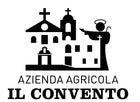Staying on a farm is a sustainable way to enjoy a holiday that respects the environment. In a world where climate change has become a global crisis, the importance of reducing personal harm to the environment has grown. A major contributor to climate change is the tourism industry, which produces around 8% of global carbon dioxide emissions. It is important to limit emissions of greenhouse gases, such as carbon dioxide, which trap long-wave radiation and cause excessive warming of the Earth's surface. By traveling consciously and sustainably, one person's contribution to global warming can be critical.
Agriturismo Il Convento sets a high standard regarding the sustainability of agritourisms. They grow most of the raw materials used for the products they offer to their guests. These products include fruits, vegetables, eggs and meat. From seed to fruit, the fruit and vegetables are grown in optimal conditions using the local volcanic clay soil of Vesuvius. Since clay soil contains less water available for plants, solar covers called Pergolato Sorrentino are used to keep the soil moist. Additionally, manure from farm animals raised on the farm is integrated into the soil to provide nutrients that clay soil lacks and to improve its structure. The use of this technique demonstrates the sustainability of agritourism because instead of outsourcing clay soil that is not ideal for farming, the potential of local soil is maximized through sustainable agricultural strategies.i.
Another sustainable aspect of this agriturismo is their use of local, seasonal agriculture. Alongside the local land used to grow their produce, Agriturismo Il Convento grows certified Sorrento PGI lemons. The Protected Geographical Indication (PGI) "Sorrento Lemon" designates the lemons produced in the area which includes part of the territory of the municipalities of: Vico Equense, Meta, Piano di Sorrento, Sant'Agnello, Sorrento, Massa Lubrense, Capri and Anacapri. By growing local crops suited to Massa Lubrense's environment, local ecosystems can function to their full potential.
In addition to the sustainable agriculture practices used by Agriturismo Il Convento, all the products grown by the Agriturismo are certified as organic. This certification process is carried out by ICEA, an independent organic certification company that establishes strict quality standards for organic products. One of the main ways in which organic farming is more sustainable than other growing methods is by not using harmful pesticides. Fewer pesticides can mean less fertilizer runoff and more biodiversity, which helps combat some of the negative effects of climate change. The lack of pesticides also makes the food safer for guests to eat and keeps the original flavors intact. This ties in with another sustainable practice used by this farm, which involves feeding farm animals food that is not consumed by guests. These animals consist of a cow, chickens, ducks and peacocks. By feeding animals food scraps produced by hosts, nutrients can be returned to the soil through manure.
Staying at an agriturismo is a sustainable way to enjoy a holiday while being environmentally conscious. In a world where climate change has become a global crisis, the importance of reducing personal harm to the environment has grown. A primary contributor to climate change is the tourism industry, which produces roughly 8 percent of overall global Carbon Dioxide emissions. It is important to limit greenhouse gas emissions such as carbon dioxide due to the long wave radiation that is trapped by them and causes the excess heating of the Earth's surface. By traveling mindfully and sustainably, a person's contribution to global warming can be reduced.
Agriturismo Il Convento sets a high standard in regards to the sustainability of agriturismos. They grow the majority of the raw materials used for the products that they offer to their guests. These products include fruits, vegetables, eggs, and meat. From seed to fruit, the fruits and vegetables are kept under optimal conditions using local volcanic clay soil from Vesuvius. Since clay soil contains less plant-available water, sun covers called Sorrentino Pergolato are used to keep the soil moist. Additionally, manure from the farm animals kept on the agriturismo is integrated into the soil to provide nutrients that the clay soil lacks. The microorganisms found in the manure helps break down the soil to make it softer and easier to cultivate.The use of this soil demonstrates the sustainability of the agriturismo because instead of outsourcing ideal loam soil for agriculture, the local soil's potential is maximized through sustainable farming strategies. .
Another sustainable aspect of this agriturismo is their use of local and seasonal farming. Alongside the local soil that is used to grow their produce, Agriturismo Il Convento grows IGP certified Sorrento lemons. The Protected Geographical Indication (IGP) "Limone di Sorrento" designates the lemons produced in the area that includes part of the territory of the municipalities of: Vico Equense, Meta, Piano di Sorrento, Sant'Agnello, Sorrento, Massa Lubrense, Capri and Anacapri. By growing local crops well suited to the environment of Massa Lubrense, the local ecosystems can function at their highest potential.
In addition to the sustainable farming practices utilized by Agriturismo Il Convento, all of the products that are grown in the gardens of the Agriturismo are certified as organic. This certification process is carried out by ICEA, an independent organic certification company that sets strict quality standards for organic produce. One of the main ways in which organic farming is more sustainable than other farming methods is the lack of harmful pesticides being used. Fewer pesticides can mean less fertilizer runoff and more biodiversity, which helps to combat some of the negative effects of climate change. The lack of pesticides also makes the food safer to eat for guests and keeps the original flavors intact. This ties into another sustainable practice that this agriturismo utilizes, which is feeding the farm animals food that is not consumed by the guests.These animals consist of a cow, chickens, ducks, and peacocks. By feeding the food waste produced by guests back to the animals, nutrients can be cycled back into the soil through the manure.

Leave a comment